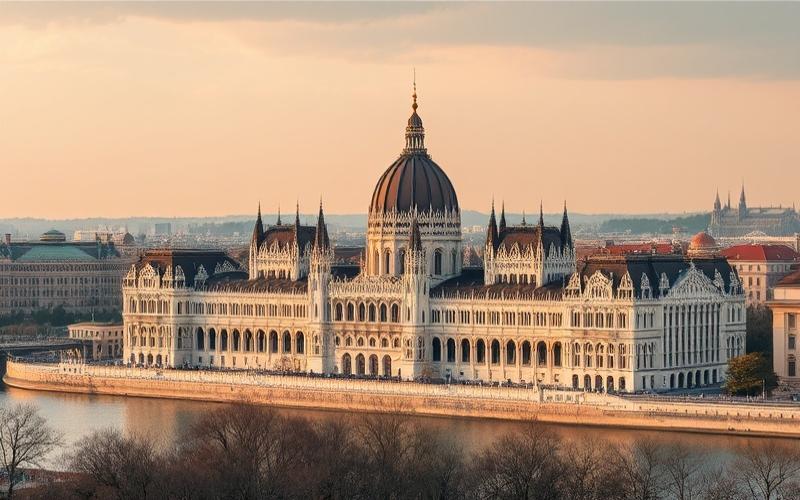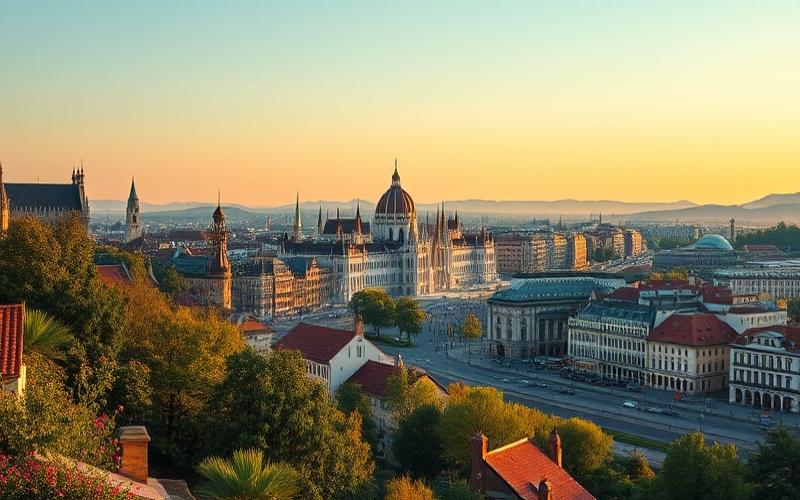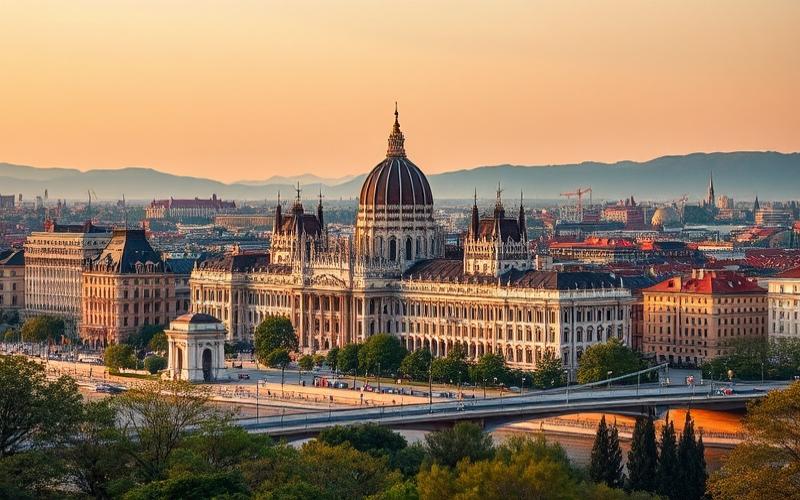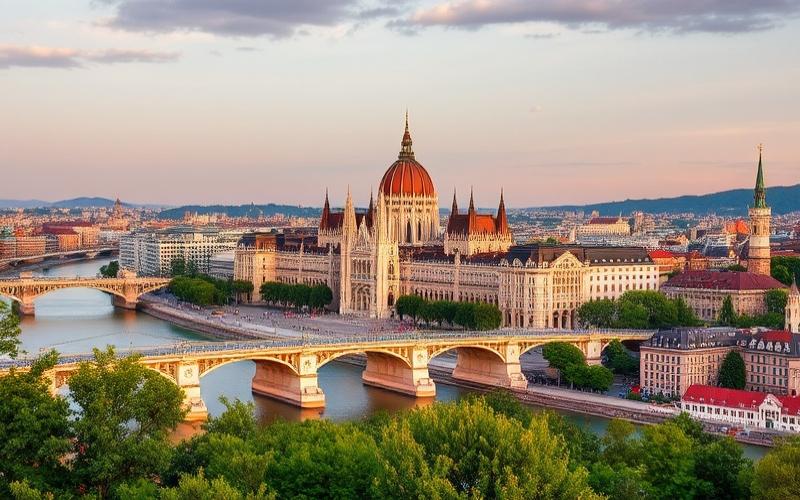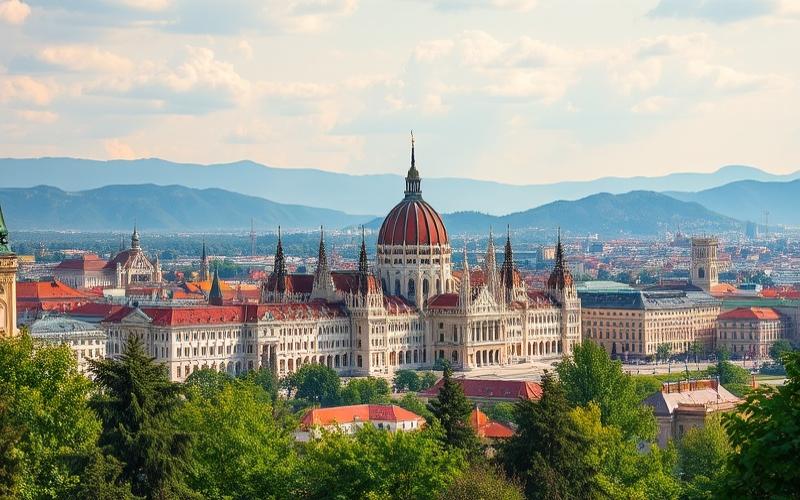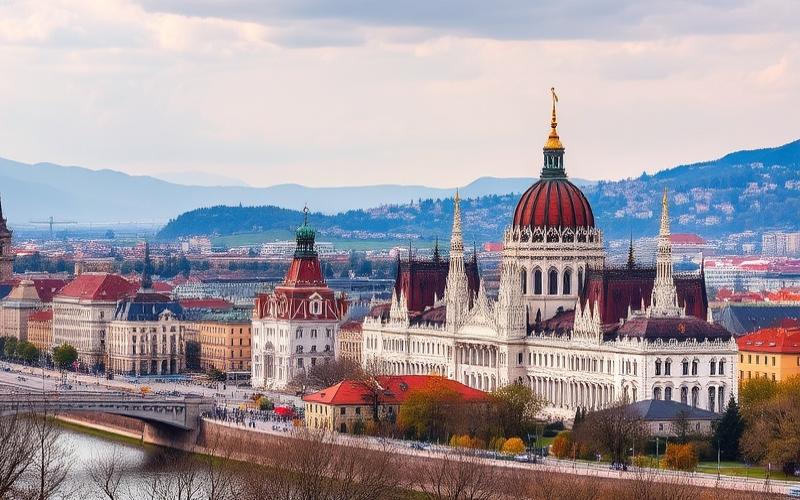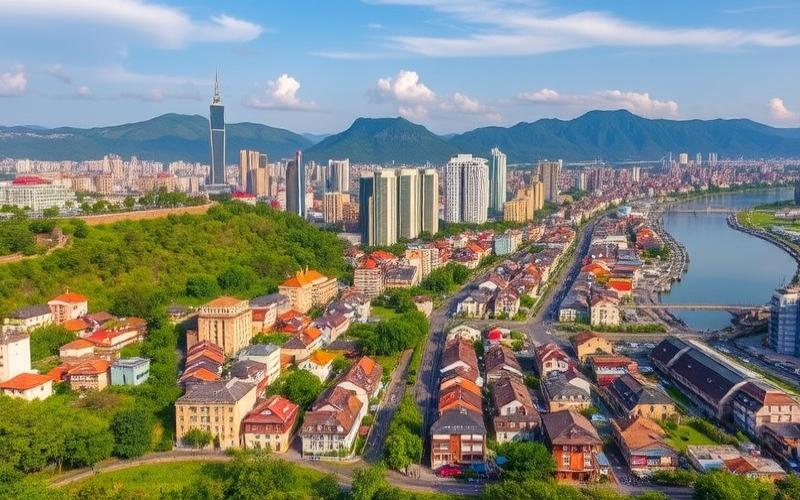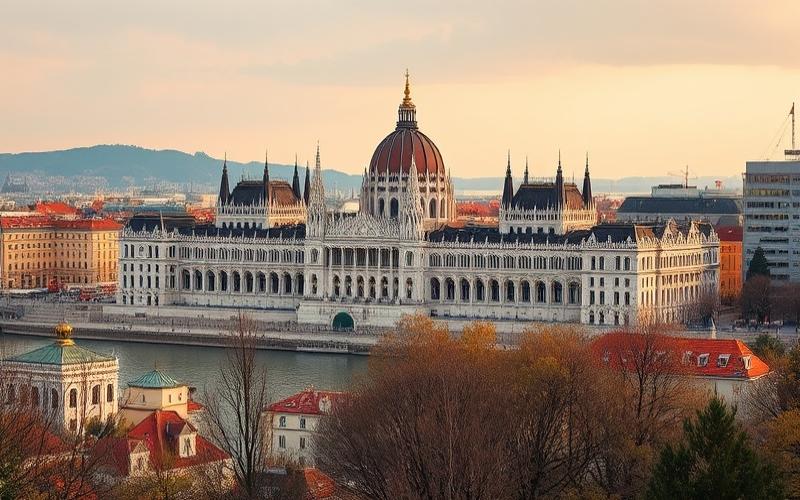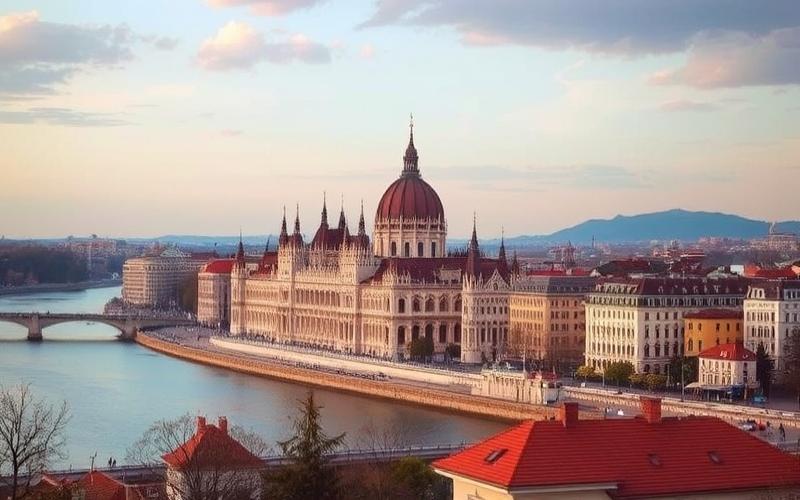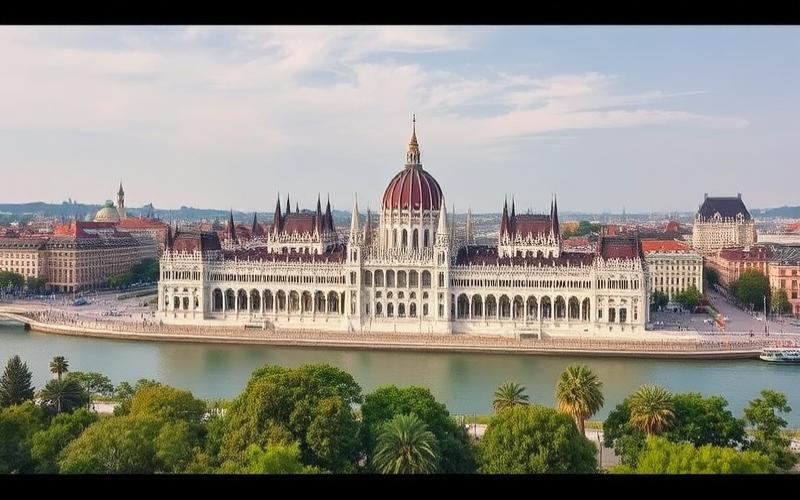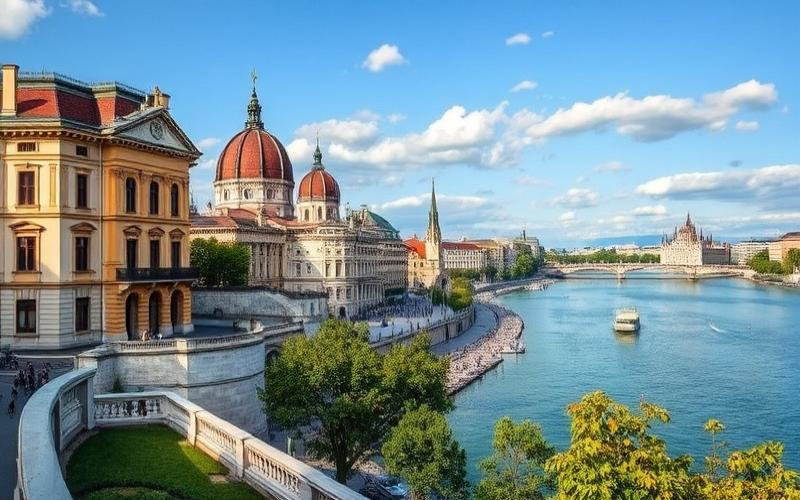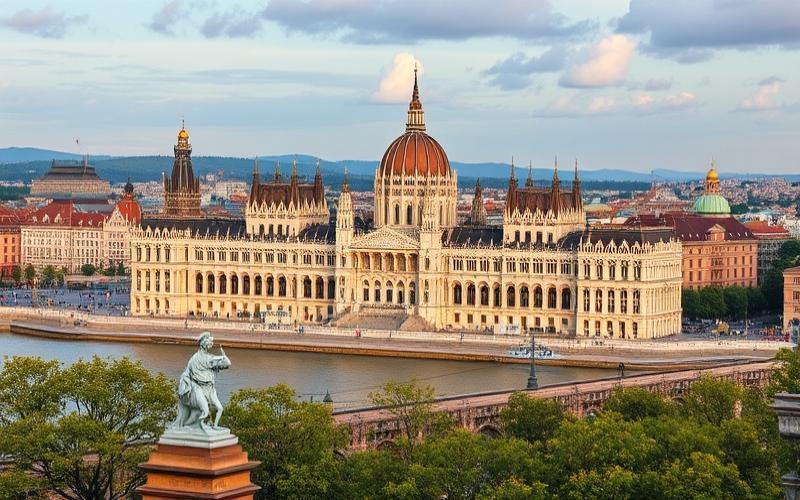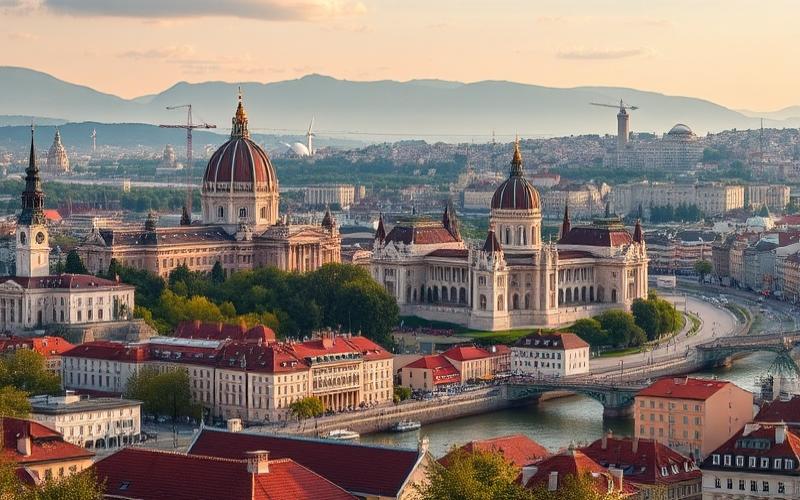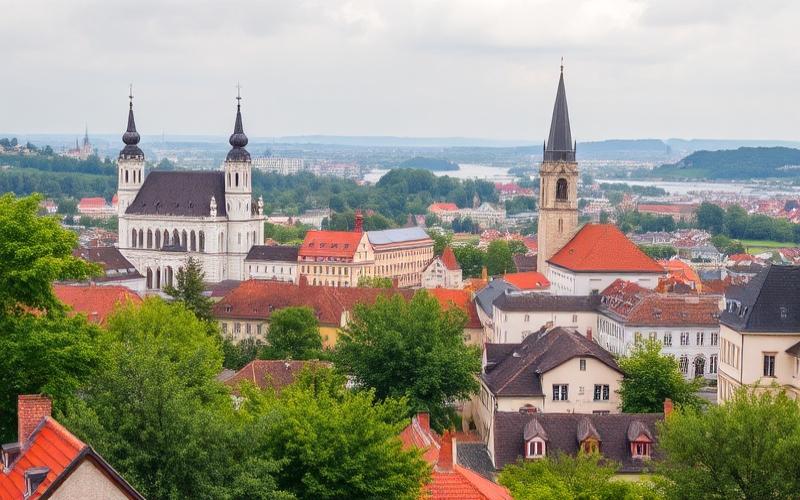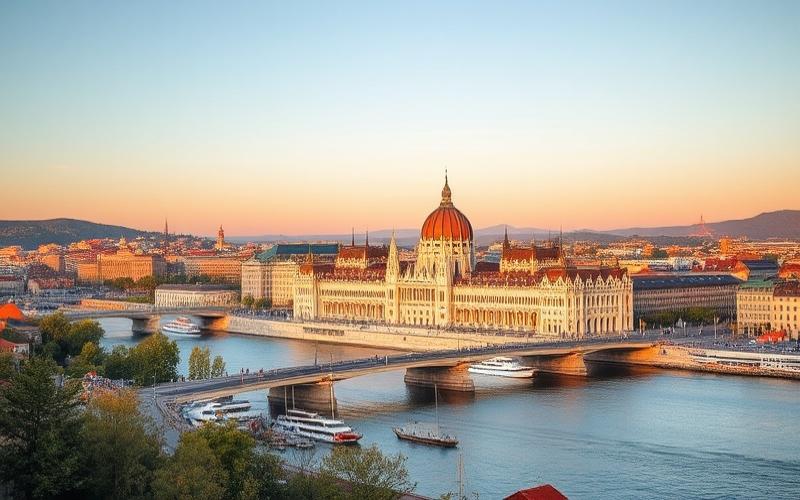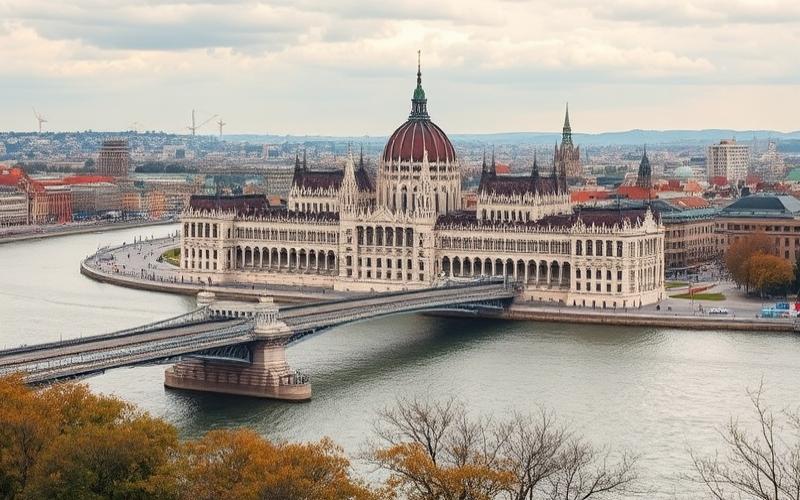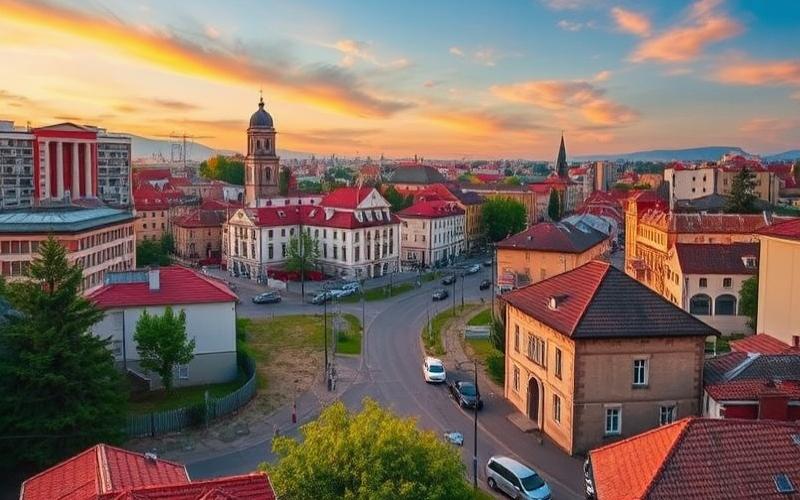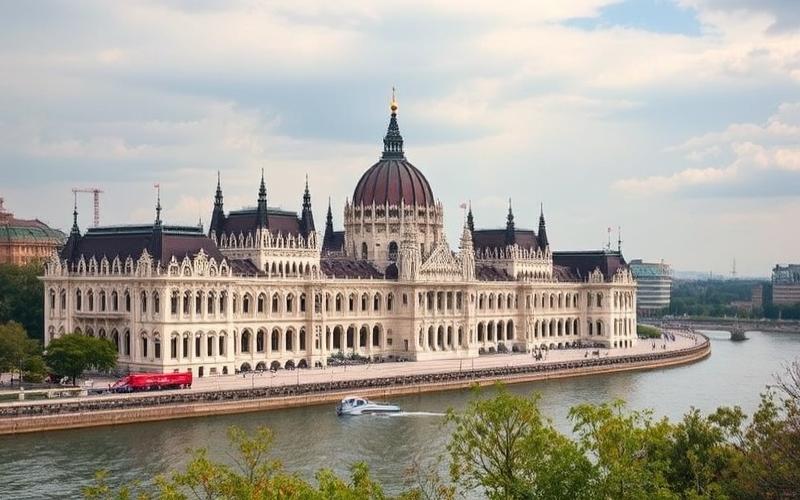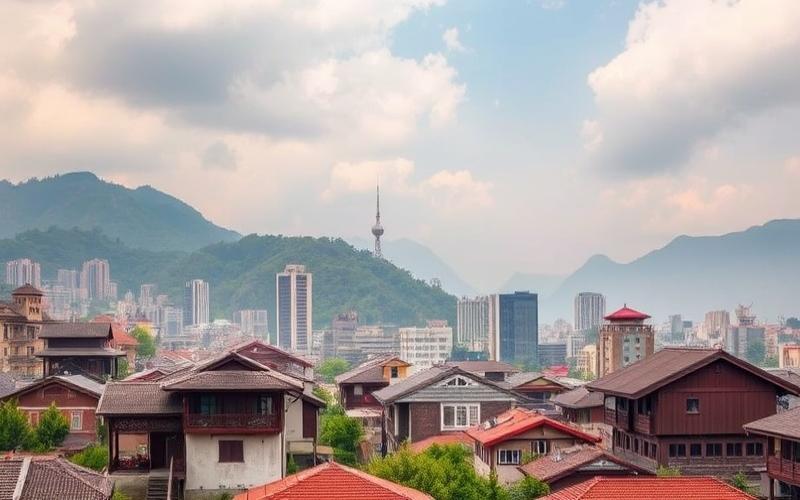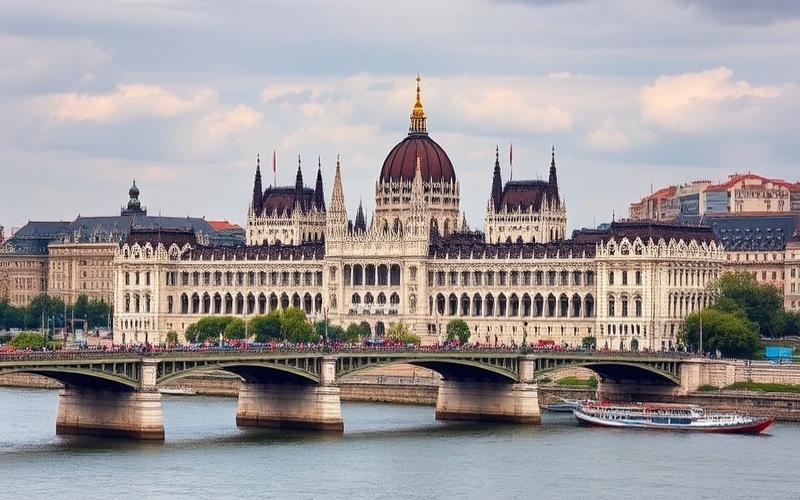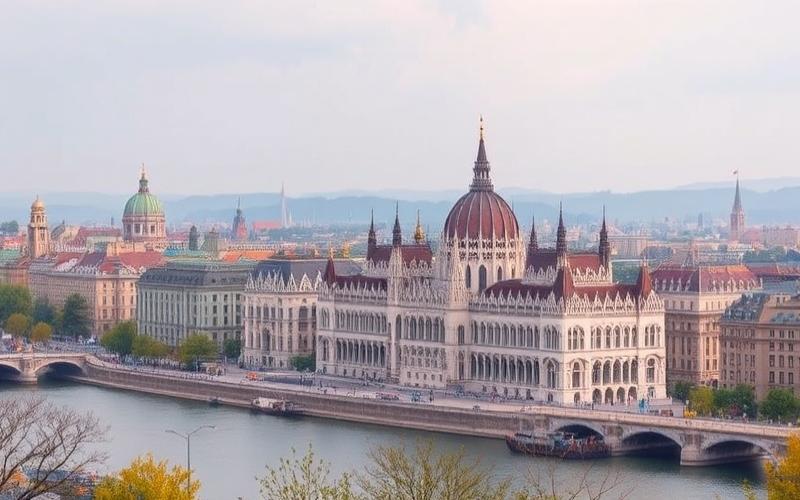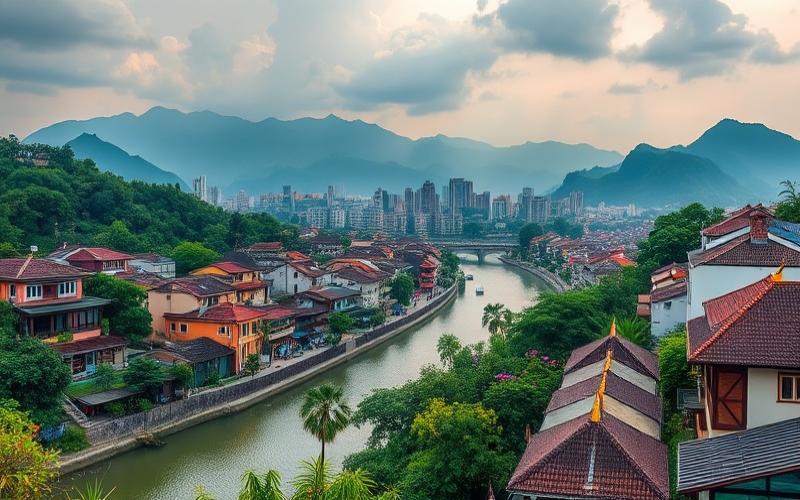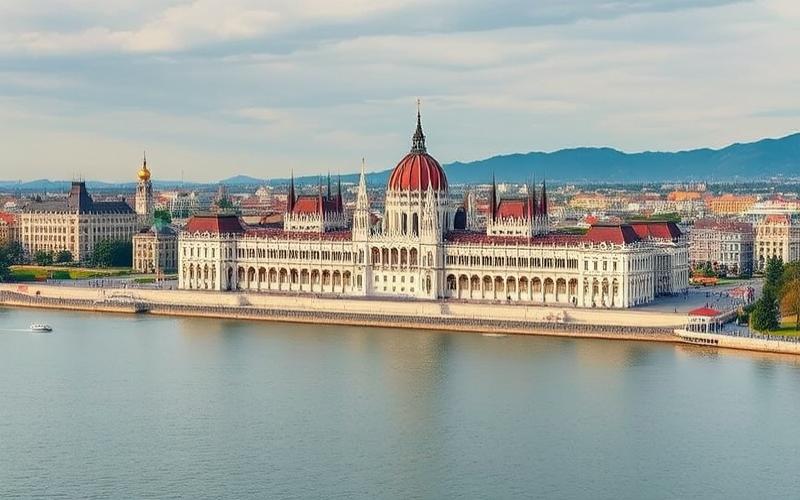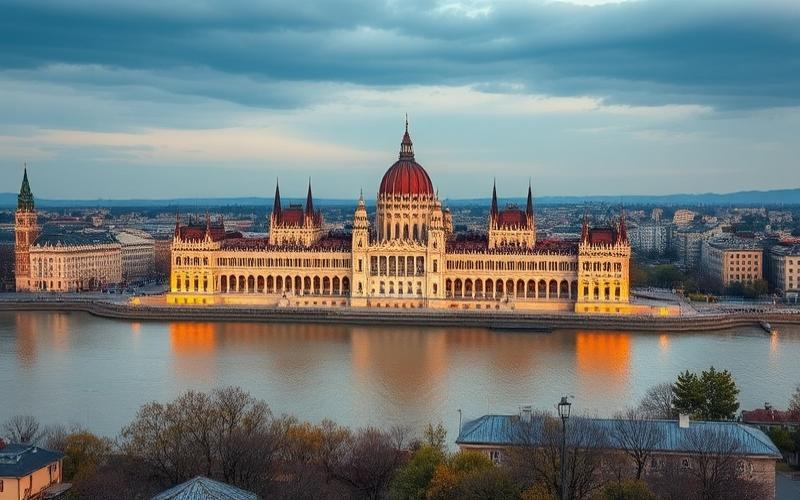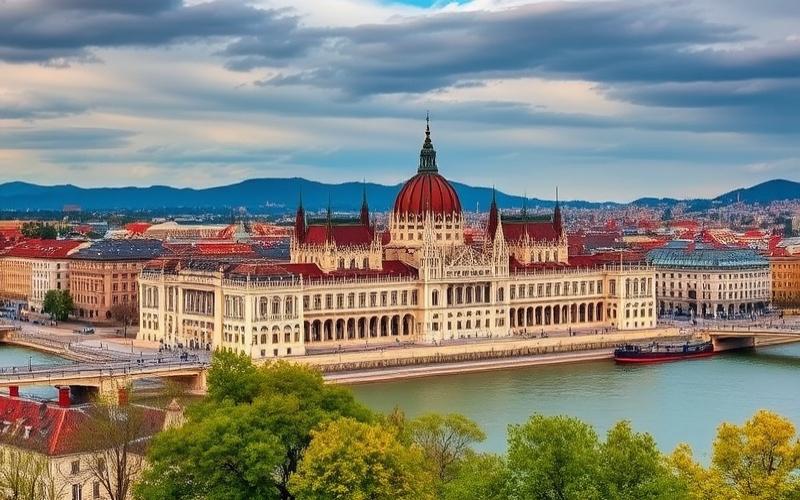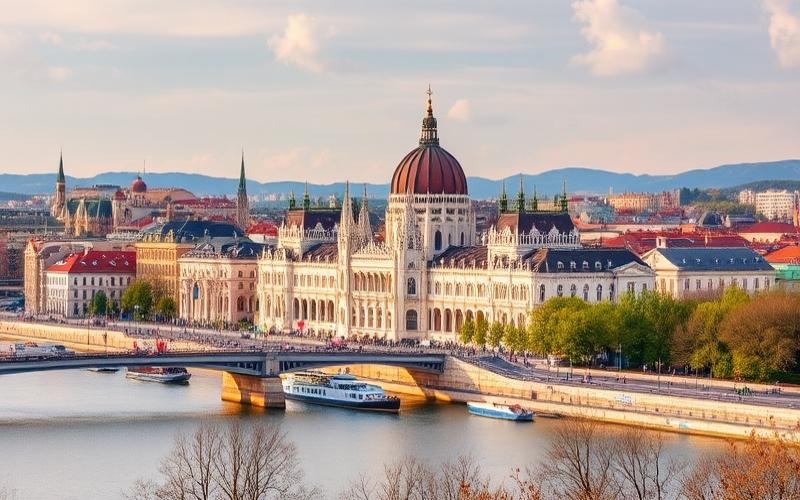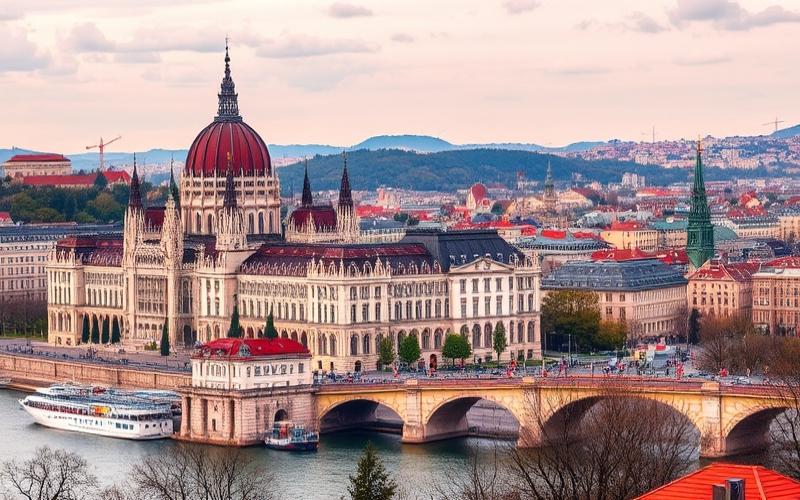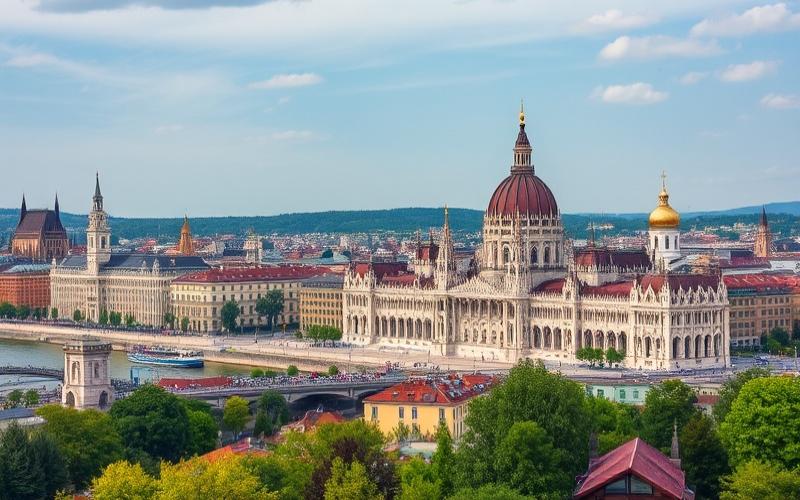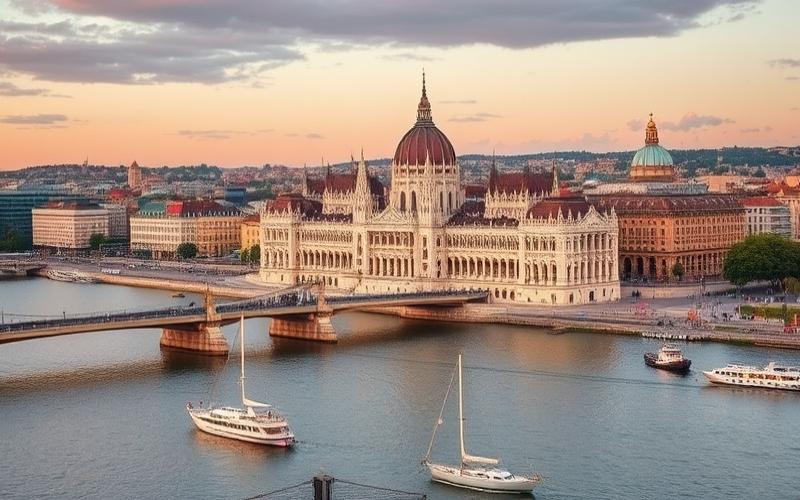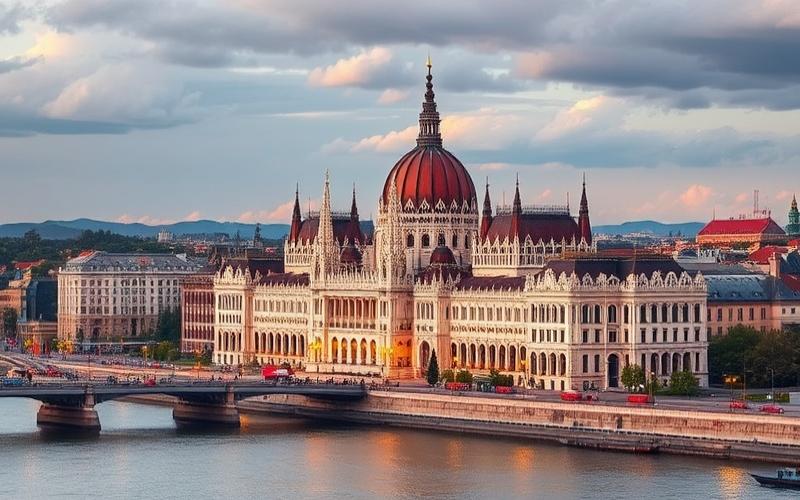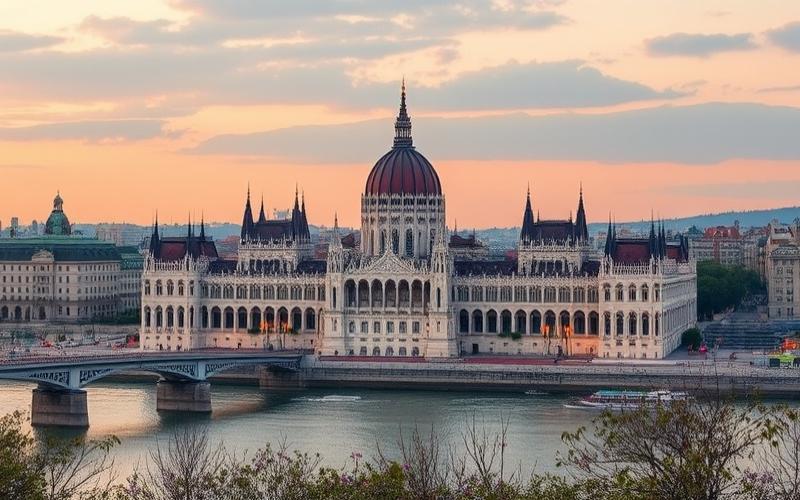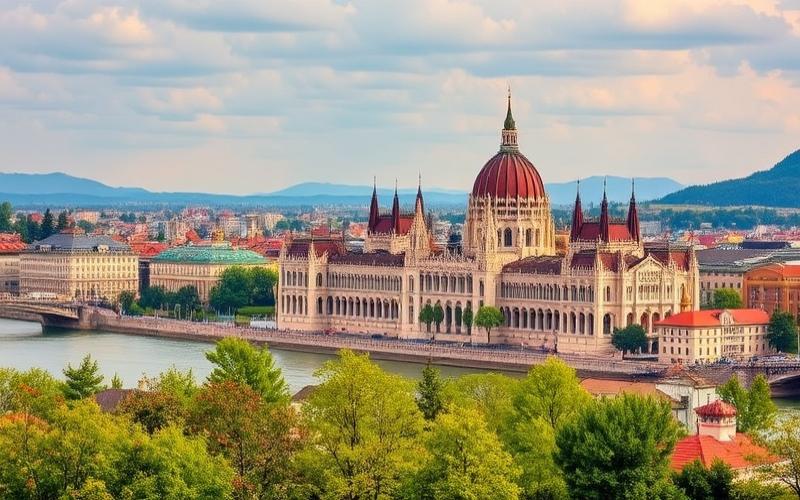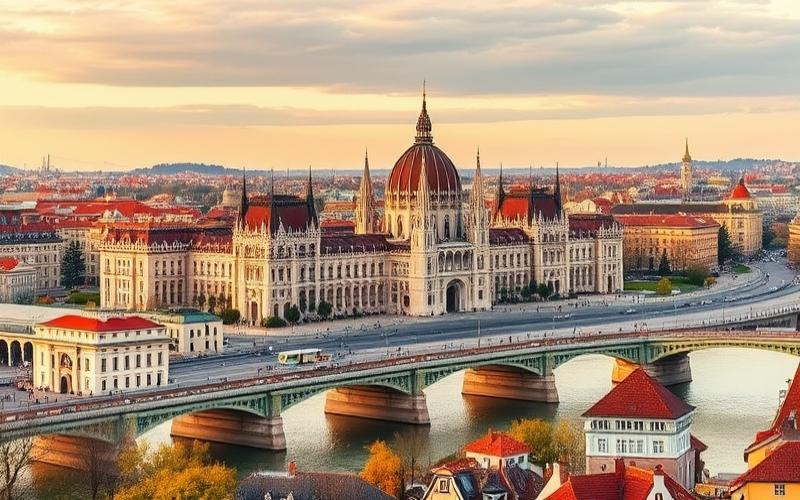
 Published on and written by Cyril Jarnias
Published on and written by Cyril Jarnias
Hungary, with its iconic capital Budapest, is attracting an increasing number of international real estate investors. Renovating a property in this Central European country can be an excellent way to increase its value while preserving the region’s unique architectural charm. In this article, we will explore the essential aspects of property renovation in Hungary, from key steps to follow and material choices to budget considerations.
Why Renovate Your Hungarian Property?
Investing in property renovation in Hungary can be a wise decision for several reasons:
- Property value increase: A well-executed renovation can significantly boost your property’s value in the Hungarian real estate market.
- Improved comfort and energy efficiency: Modern renovations optimize insulation and heating systems, thereby reducing energy costs.
- Preservation of architectural heritage: Hungary is rich in historical buildings, particularly in Budapest. A respectful renovation preserves this heritage while modernizing it.
- Enhanced rental appeal: A renovated property attracts more potential tenants, whether for long-term or tourist rentals.
The Hungarian real estate market currently offers interesting opportunities for investors. After a difficult period of inflation, real wages are now rising, and consumer confidence is improving. Interest rates are also declining, which favors real estate investments.
From Planning to Completion: Key Steps in Your Renovation Project
Renovating a property in Hungary requires a methodical and well-planned approach. Here are the main steps to successfully complete your project:
1. Initial Assessment and Planning
Before starting work, it’s crucial to conduct a thorough assessment of your property:
- Hire a local expert to assess the property’s overall condition
- Identify priority work (structure, roofing, insulation, etc.)
- Define your renovation goals (modernization, preserving character, etc.)
- Establish a preliminary work schedule
2. Obtaining Necessary Permits
In Hungary, certain renovation work may require specific permits:
- Inquire with the local municipality about required permits
- If your property is listed, consult heritage services
- Factor permit approval times into your schedule
3. Professional Selection
Choosing the right craftsmen and companies is crucial for your project’s success:
- Prefer local professionals with good knowledge of Hungarian architectural specifics
- Request multiple quotes and compare them carefully
- Check references and insurance of selected companies
4. Work Execution
Once preparations are complete, it’s time for the concrete renovation phase:
- Start with structural work (foundation, roofing, etc.)
- Continue with interior improvements (insulation, electricity, plumbing)
- Finish with final touches (painting, flooring, etc.)
5. Quality Control and Finishing
The final step is crucial to guarantee your renovation’s quality:
- Conduct regular site visits to monitor work progress
- Don’t hesitate to hire an independent expert for final inspection
- Ensure all work complies with current Hungarian standards
It’s important to note that renovating a Haussmann-style apartment, an architectural style frequently found in Budapest, requires special attention. These character properties need specific expertise to combine modernity with heritage preservation.
Good to Know:
Renovating a property in Hungary requires meticulous planning and compliance with local regulations. It’s highly recommended to work with experienced professionals to successfully complete your project.
Financing Your Project: Budget and Funding Options
Renovating a property in Hungary represents a significant investment. It’s essential to carefully plan your budget and explore different available funding options.
Establishing a Realistic Budget
To establish your renovation budget, consider the following elements:
- Material costs
- Labor
- Administrative fees (permits, authorizations)
- Contingencies (allow 10-15% of total budget)
In Hungary, renovation costs can vary considerably depending on the scope of work and property location. As a guideline, here’s an estimate of average renovation costs per square meter:
- Light renovation (painting, floors, general refresh): €500-800/m²
- Complete renovation (plumbing, electricity, kitchen and bathrooms): €1,200-1,800/m²
- High-end renovation (molding restoration, solid Hungarian point parquet, premium finishes): €2,000-3,000/m²
Funding Options
Several options are available to finance your renovation project in Hungary:
- Local mortgage: Hungarian banks offer specific loans for renovation. Rates can be attractive, but beware of exchange rate fluctuations if borrowing in Hungarian forint.
- International mortgage: If you’re a non-resident, some international banks offer adapted financing solutions. Required down payments typically range from 10% to 40% depending on the institution.
- Self-financing: If you have the necessary funds, self-financing can be an interesting option, avoiding loan-related fees.
- Grants and subsidies: Inquire about potential Hungarian government assistance for renovation, particularly for energy improvement work.
It’s important to note that interest rates in Hungary have recently decreased, which may make borrowing more attractive to finance your renovation project.
Good to Know:
Before committing to financing, carefully compare offers from multiple banking institutions. Don’t hesitate to use a broker specialized in international mortgages to assist with your procedures.
Materials and Techniques: Combining Tradition and Modernity
Material choice is crucial in a Hungarian renovation project, particularly to preserve buildings’ authentic charm while modernizing them.
Traditional Materials
Hungary has a rich architectural heritage. For a respectful renovation, prioritize:
- Wood: Essential for parquet flooring, particularly the famous Hungarian point, highly prized in Budapest’s Haussmann-style apartments.
- Stone: Used for facades, window frames, or fireplaces.
- Plaster: Ideal for restoring moldings and ornaments, characteristic of Hungarian architecture.
Modern and Eco-Friendly Materials
To improve your property’s energy performance, choose:
- Natural insulation: Wood wool, hemp, or cellulose for effective and eco-friendly insulation.
- Double or triple glazing: Essential for thermal and acoustic insulation, particularly important in cities like Budapest.
- Efficient heating systems: Heat pumps or condensing boilers to reduce energy consumption.
Renovation Techniques
Certain techniques are particularly suited to renovating older properties in Hungary:
- Parquet restoration: Sanding and varnishing can revive old parquet floors, very common in Hungarian apartments.
- Facade renovation: Lime plaster techniques are ideal for older buildings, allowing walls to “breathe.”
- Molding restoration: Hire professional plasterers to restore or reproduce original moldings.
In the case of energy renovation, it’s important to note that every euro invested yields an announced annual energy gain of approximately 215 Whef/year. The average energy consumption reduction for renovated buildings is 37% to 42% depending on the case.
Good to Know:
When renovating an older property in Hungary, it’s crucial to find the right balance between heritage preservation and modernization. Don’t hesitate to consult experts in historical building renovation to guide your choices.
Conclusion: An Investment for the Future
Renovating a property in Hungary represents a stimulating and potentially very profitable challenge. By following key steps, establishing a realistic budget, and wisely choosing your renovation materials and techniques, you can significantly increase your property’s value while preserving its authentic charm.
It’s important to note that Budapest, in particular, offers interesting opportunities for real estate investors. With prices still affordable compared to other European capitals and a growing market, the city presents significant value-added potential.
Whether you want to renovate a Haussmann-style apartment in the heart of Budapest or a country house in the Hungarian countryside, a well-executed renovation will not only improve your quality of life or rental income but also contribute to preserving Hungary’s rich architectural heritage.
Remember that each renovation project is unique and requires a personalized approach. Don’t hesitate to surround yourself with experienced professionals to guide you throughout your project and maximize your real estate investment in Hungary.
Good to Know:
Hungary, and particularly Budapest, offers excellent value for money in real estate. With a well-executed renovation, you can significantly increase your property’s value and benefit from a growing real estate market.
Disclaimer: The information provided on this website is for informational purposes only and does not constitute financial, legal, or professional advice. We encourage you to consult qualified experts before making any investment, real estate, or expatriation decisions. Although we strive to maintain up-to-date and accurate information, we do not guarantee the completeness, accuracy, or timeliness of the proposed content. As investment and expatriation involve risks, we disclaim any liability for potential losses or damages arising from the use of this site. Your use of this site confirms your acceptance of these terms and your understanding of the associated risks.

